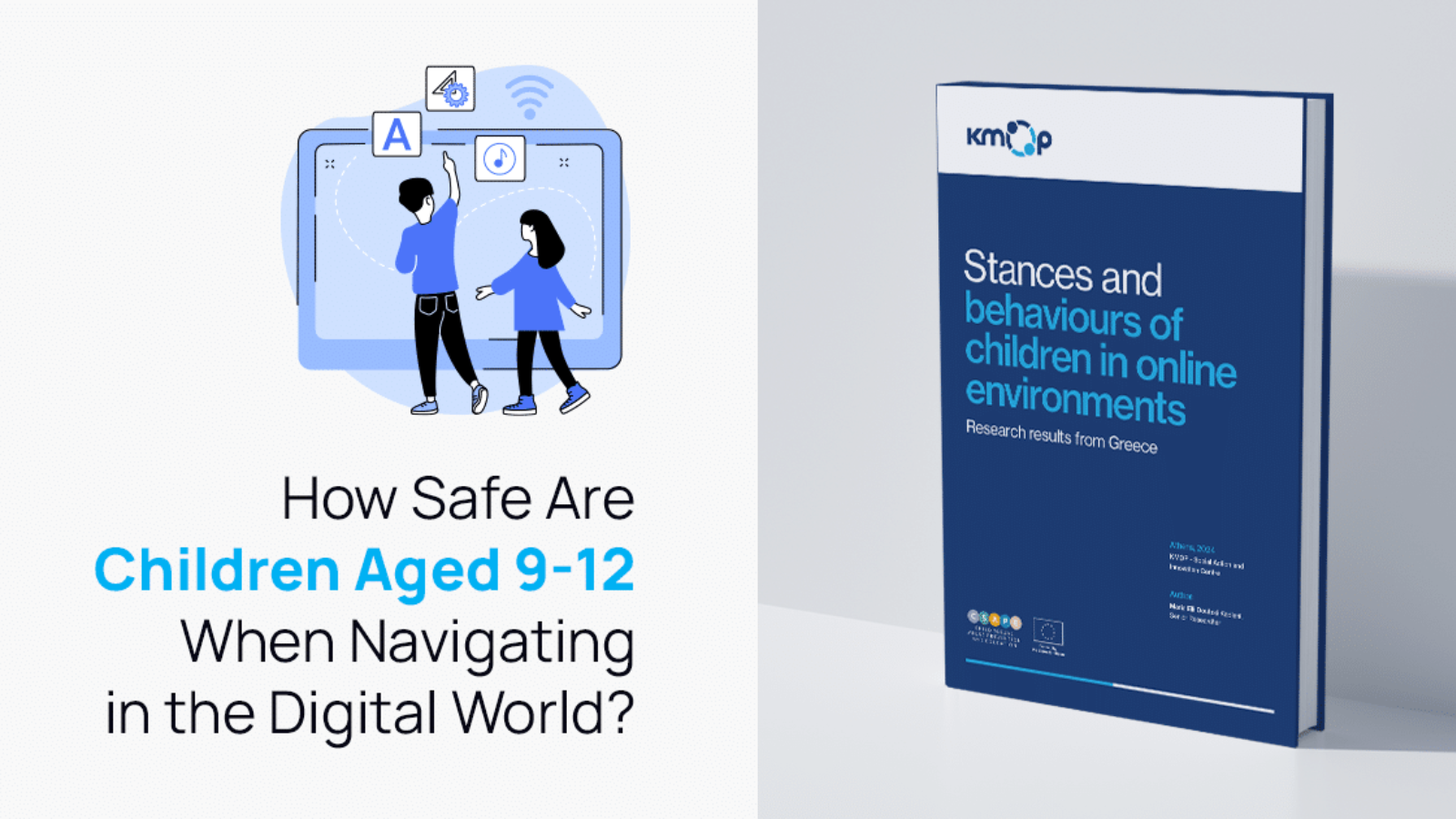COFACE member, KMOP, presents a new study that highlights the urgent need to safeguard children from online risks. The study focuses on the online behaviour, risks, and digital safety awareness of children aged 9 to 12 years in Greece, providing valuable insights into their digital habits and vulnerabilities.
The study, conducted with the participation of 251 children in Greece, unveils alarming data and challenges concerning the safety and well-being of children:
- Increased autonomy, greater risks
76.6% of children have internet access through their own device, offering them greater autonomy but also increasing their exposure to online dangers.
- Daily use of social media and online gaming
Approximately eight in ten children play online games daily, while around six in ten children engage with social media every day.
- Personal data and grooming risks
One in eight children shares photos showing their face. One in seven shares their phone number, and around one in five shares their full name and real age. One in four shares their hobbies and interests, while just over one in three reports an age older than their actual one.
- Exposure to inappropriate content
22.8% of children reported being exposed to age-inappropriate content at least once in the past year.
- Lack of awareness of reporting tools
One in three children does not know how to use blocking or reporting tools online.
Read more here.





